Fix: One of your Disks Needs to be Checked for Consistency
CHKDSK is windows feature built in and designed by Microsoft to check and ensure disk integrity for bad sectors and fragment spaces to optimise disk performance and improve overall efficiency. When a disk is detected to have errors by windows, it run’s a chkdsk or requests the user to run chkdsk.
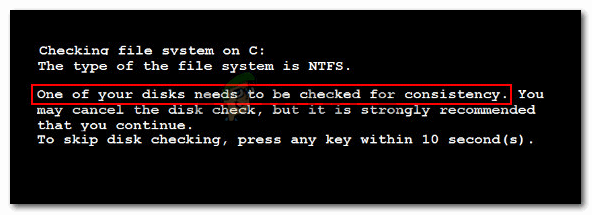
Note: On Windows 8, the error message is a little different: “We found errors on a drive. To repair these errors and prevent loss of data, restart your PC now. The repair could take a while to complete.”
What is causing the “one of your disks needs to be checked for consistency” error
We investigated this particular issue by looking at how other users have dealt with the problem and the solutions that they reported back. From what we gathered, there are several common causes that will trigger the error message. One of the scenarios below should apply to your current situation:
- A storage file was removed from the computer after hibernation – Keep in mind that whenever a Windows-Based computer enters hibernation (regardless of the Windows version), all necessary information (memory content, system state, etc.) is stored in a file referred to as Hiberfile. If the contents of the storage device are changed when the system exits hibernation, you can expect data corruption and other inconsistencies.
- Windows 8 is installed in an unsupported configuration – This typically happens if you installed Windows 8 with other operating systems. The issue occurs when you try multibooting Windows 8 with an unsupported configuration.
- The hard disk contains NTFS file system errors – The issue might also occur if your computer’s hard disk contains file system errors. In this case, the solution is simply to scan and fix the errors on the drive.
- Check disk entry is not being cleared from the Registry – This is known to happen under certain circumstances. In this case, the solution is to clear the CHKDSK registry entries manually using Registry Editor.
If you’re currently looking or a resolution to this particular error message, this article will provide you with some troubleshooting steps. Below you have a collection of methods that other users in a similar situation have successfully used to get the issue resolved.
For the best results, follow the methods below in the order that they are presented until you discover a fix that is effective in resolving the error in your particular scenario.
Method 1: Allowing the CHKDSK scan to complete
Before suspecting foul play, it’s important to consider the possibility that Windows does have a legitimate reason for displaying the “One of your disks needs to be checked for consistency” error at every startup.
Most likely, it’s trying to deal with a system file error that is interfering with a startup process. If you didn’t try it before, allow the CHKDSK scan to complete by not pressing any key in order to avoid disk checking.
You can also trigger a manual CHKDSK scan by following the instructions below:
- Press Windows key + R to open up a Run dialog box. Then, type “cmd” and press Ctrl + Shift + Enter to open up an elevated Command Prompt window. When prompted by the UAC (User Account Control), click Yes to grant administrative privileges.
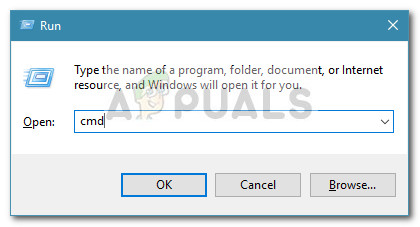
Run dialog: cmd , then press Ctrl + Shift + Enter - Inside the Elevated Command Prompt window, type the following command and press Enter to trigger a CHKDSK scan:
chkdsk /r
When the procedure completes, allow your computer to complete the startup procedure (if necessary), then trigger another restart.
If you’re no longer encountering the error, you’re good to go. In the event that you’re still seeing the “One of your disks needs to be checked for consistency” error at every startup, continue down with the next method below.
Method 2: Clearing the check disk entries manually using Registry Editor
If you are able to start your computer after the CHKDSK procedure completes (but you’re still getting the “One of your disks needs to be checked for consistency” error at every startup, you might be dealing with an entry clearing error inside the Registry.
Several users encountering the same issue have reported that for them the issue was resolved after they used Registry Editor to clear any scheduled CHKDSK scans from the registry editor. It’s possible that you’re getting this error because the scheduled Check Disk scan is not being cleared from the Registry after the procedure is complete.
Here’s a quick guide on how to resolve this issue by using Registry Editor to clear the scheduled CHKDSK scans:
- Press Windows key + R to open up a Run dialog box. Then type “regedit” and press Enter to open up Registry Editor. At the UAC (User Account Control) prompt, click Yes to grant administrative privileges.
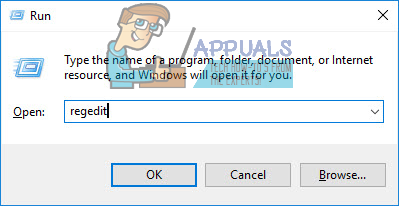
Run dialog: regedit then click Yes to open as Admin - Inside Registry Editor, navigate to the following location using the left-hand pane:
HKEY_LOCAL_MACHINE\SYSTEM\CurrentControlSet\Control\Session Manager
- Once you get to the above-mentioned location, move over to the right pane and double-click on BootExecute.
- If the value data of Boot execute is set to autocheck autochk * /r\DosDevice\C: to autocheck autochk * and press Ok to save the changes.
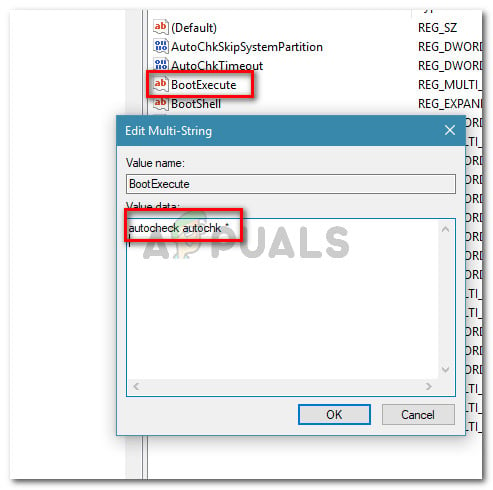
Making sure that the BootExecute value is set to autocheck autochk * Note: If the value data is already set to autocheck autochk *, do not change anything and move directly to the next method below.
- Restart your machine and see if the error returns at the next startup.
If you’re still seeing the One of your disks needs to be checked for consistency error, move down to the next method below.
Method 3: Verifying the status of the bit that is supposedly dirty
One reason why you’re consistently seeing CHKDSK scans without scheduling anything is if the disk’s “dirty bit” is set. This state will be enforced if Windows was not shut down correctly, some file changes have not completed or if the disk is corrupted.
In some case, it might also be an indicator that the disk is about to fail. Or, if you’re experiencing this with an external drive, it’s probably because you removed it without using the Safely Remove Hardware function.
In any of the cases presented above, you can use the fsutil command to check the status of the dirty bit. But you’ll need to do it in an elevated command prompt with administrative rights.
Here’s what you need to do:
- Press Windows key + R to open up a Run dialog box. Then, type “cmd” and press Ctrl + Shift + Enter to open an elevated Command Prompt. When prompted by the UAC (User Account Control), click Yes to grant admin rights.

Run dialog: cmd , then press Ctrl + Shift + Enter - Inside the elevated Command Prompt window, run the following command and press Enter to check the status of the dirty bit.
fsutil dirty query X:
Note: Keep in mind that X is merely a placeholder. Replace it with the letter of the drive you’re having issues with.
- If you get returned a message saying that the targeted volume is not dirty, you can exclude the possibility that you’re dealing with a dirty drive. In this case, move directly to the next method below.
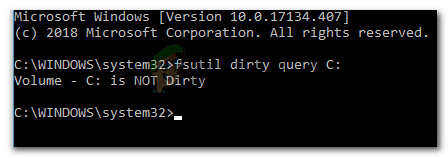
Example of a targeted volume that is not dirty - If the volume is identified as dirty, run the command below to deal with the issue:
chkdsk D: /f /x
- Once the process is complete, repeat step 3 again to ensure that the dirty bit has been removed. If the answer is yes, restart your machine and see if the “One of your disks needs to be checked for consistency” error returns.




